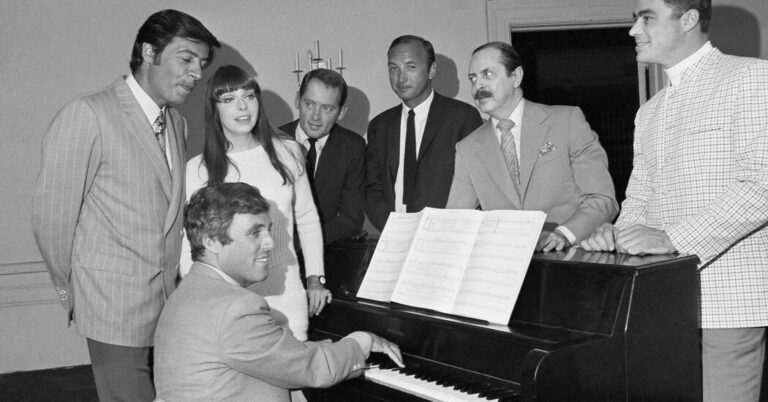
A week or so later, a phone call to Palm Springs from Merrick confirmed that there were limits to what Bacharach could control in a live production, eight times a week. “He called me and said ‘Eight subs [substitute players] in the orchestra last night, including the drummer’ and guess who was in the audience? Richard Rodgers! This great, great composer. Richard Rodgers!,” he recounted in “Notes on Broadway.” “It made me feel just terrible, because my music is not that easy to play. A song like ‘Promises, Promises’ changes time signature in almost every bar. And I’ve got … a drummer who’s sight-reading, who’s never played it before.”
“Promises, Promises” was hardly an irreparable disappointment for Bacharach: The original Broadway production ran for 1,281 performances (and Jerry Orbach, who played the accountant, won a Tony Award for the role); there was a robust West End run; and a Broadway revival (sized and trimmed for contemporary tastes) in 2010 starred Kristin Chenoweth and Sean Hayes. And “I’ll Never Fall in Love Again” would become a smash single for Warwick in 1970, hitting No. 1 on Billboard’s adult contemporary chart; it would also be the last time a song originating on Broadway reached the top spot on any of the Billboard charts.
That was probably cold comfort to Bacharach. Looking back on his Broadway experience for the CD liner notes decades later, he was definitive: “If you’re doing a musical, it’s going to change every night,” he wrote. “If you’re doing something on record, it doesn’t get changed every night. So that’s what I prefer to do.”
David, also quoted in the liner notes, said about his collaborator and the reality of Broadway: “If you’re a perfectionist, it can drive you crazy.”
Sixteen months after “Promises” opened, Stephen Sondheim’s “Company” arrived on Broadway and the modernity of its sound would have been unthinkable without Bacharach’s innovations. Indeed, many of them were reintroduced by Tunick, the “Promises” orchestrator, when he took on the orchestrations for “Company.”
“If I were hearing ‘Another Hundred People’ for the first time,” the music critic Will Friedwald said in an interview for this article, “I would have guessed it was Bacharach and not Sondheim.”